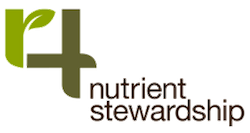![]() Cover crops are one simple farming technique that can save money, produce better crops, clean rivers and estuaries, and address climate change. Yet, a new report released today from National Wildlife Federation, Counting Cover Crops, finds that less than 2% of cropland in the highly-farmed Mississippi River Basin is planted to cover crops. How can the nation get more cover crops on the ground? A second NWF report released today, Clean Water Grows, provides six examples of water quality groups working with farmers to clean up rivers and streams using cover crops.
Cover crops are one simple farming technique that can save money, produce better crops, clean rivers and estuaries, and address climate change. Yet, a new report released today from National Wildlife Federation, Counting Cover Crops, finds that less than 2% of cropland in the highly-farmed Mississippi River Basin is planted to cover crops. How can the nation get more cover crops on the ground? A second NWF report released today, Clean Water Grows, provides six examples of water quality groups working with farmers to clean up rivers and streams using cover crops.
Cover crops are non-commodity crops grown to protect soil in fallow fields, which also provide benefits to the public by improving water quality, air quality and wildlife habitat. If adopted on a large scale throughout the Mississippi River Basin (MRB), National Wildlife Federation believes cover crops could greatly improve the health of the Gulf of Mexico by keeping nutrients and sediments on farms and out of waterways. Cover crops could also help solve the worsening problem of toxic algae plaguing lakes, rivers, and streams across the nation.
Yet, the potential of cover crops in the Midwest is still largely untapped. Counting Cover Crops reveals that despite the growing popularity and the many benefits provided by cover crops, only 1.8 million acres (less than 2% of total cropland) in the MRB are planted to cover crops.




 Seems like just yesterday we discussed the benefits of pre-season planting preparation, and now we find ourselves staring a pre-harvest checklist straight in the eye. But keep in mind that servicing your precision ag equipment prior to harvest is equally as important as in the spring.
Seems like just yesterday we discussed the benefits of pre-season planting preparation, and now we find ourselves staring a pre-harvest checklist straight in the eye. But keep in mind that servicing your precision ag equipment prior to harvest is equally as important as in the spring. 




